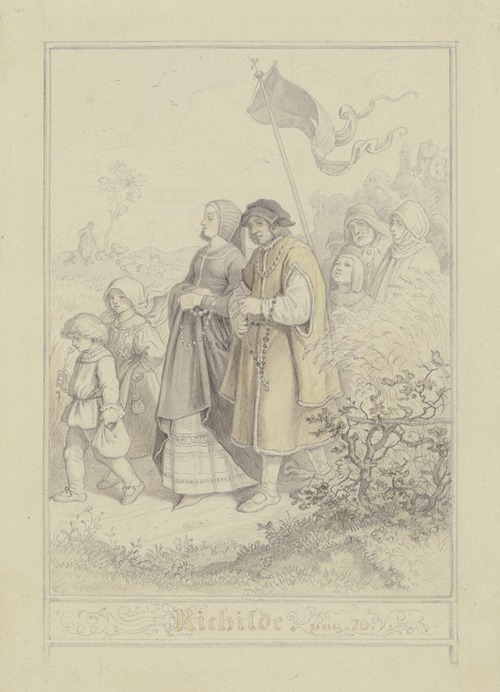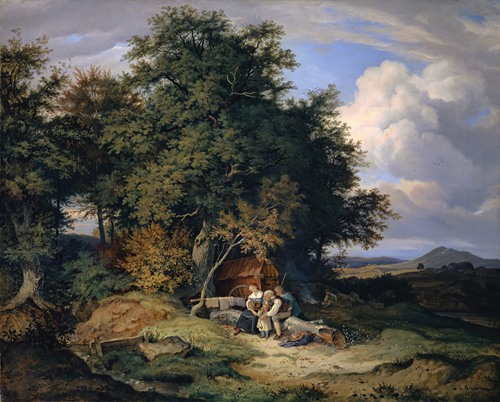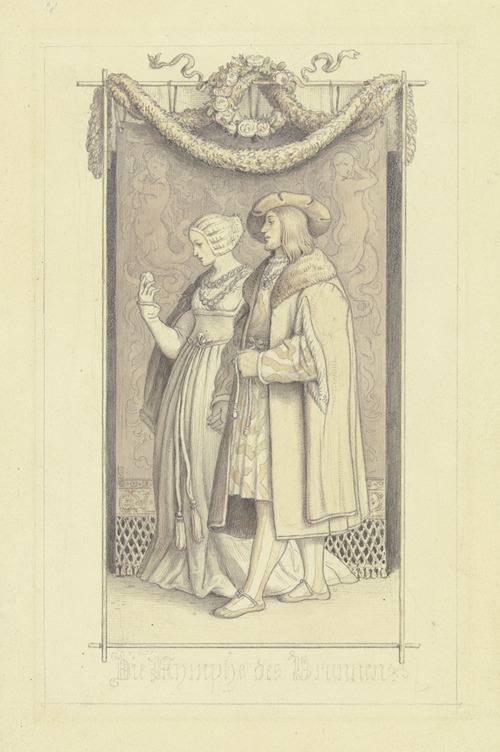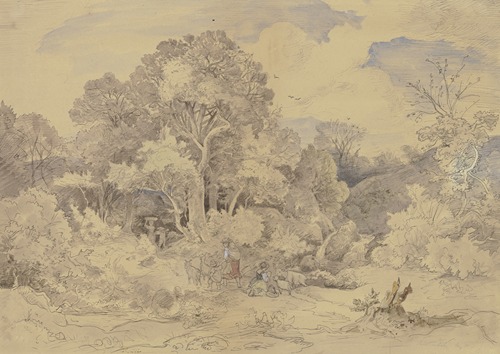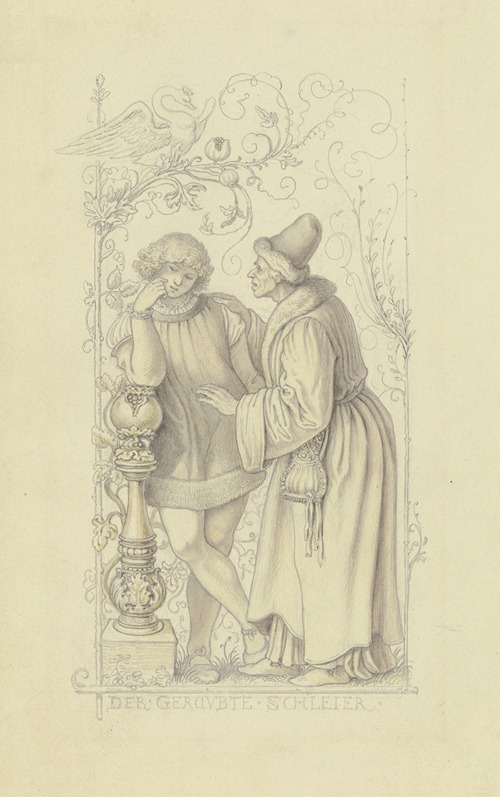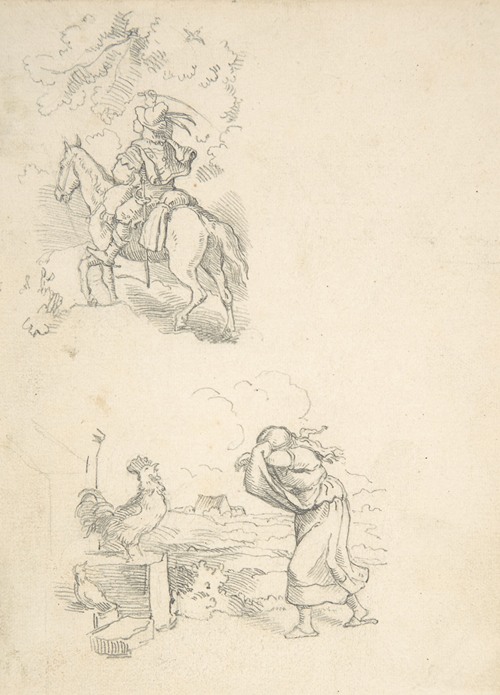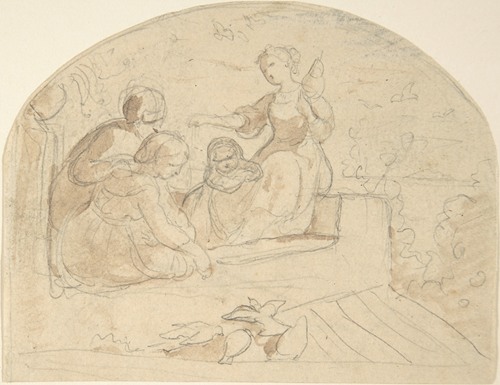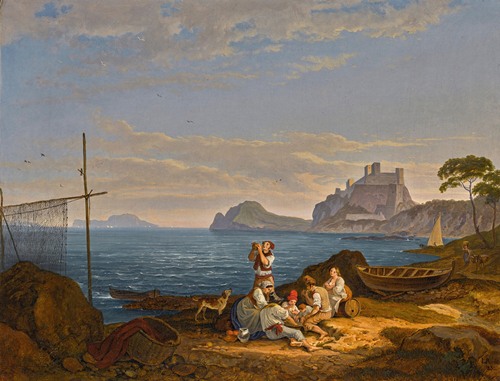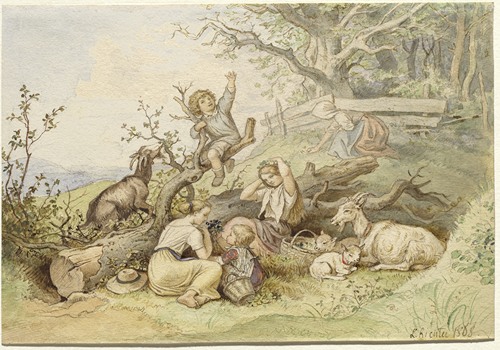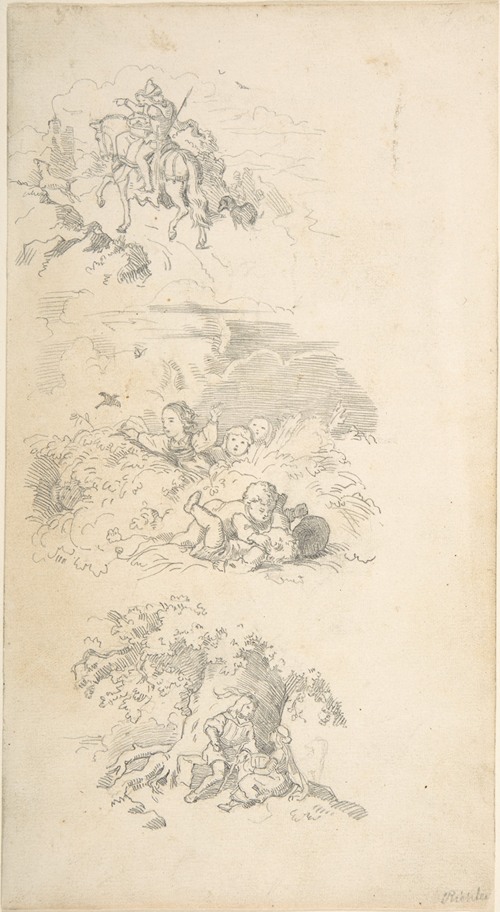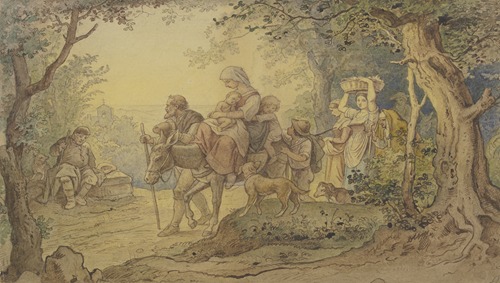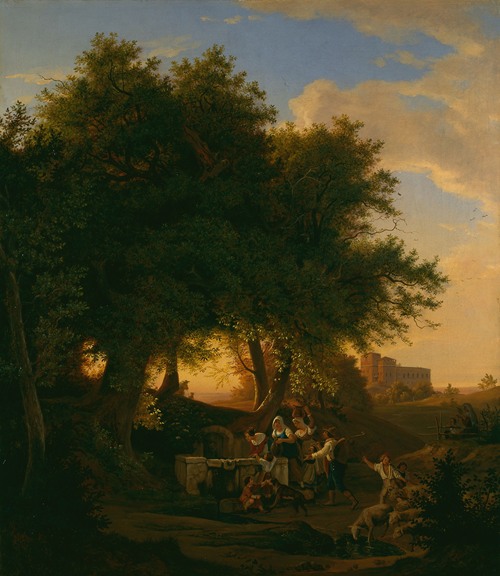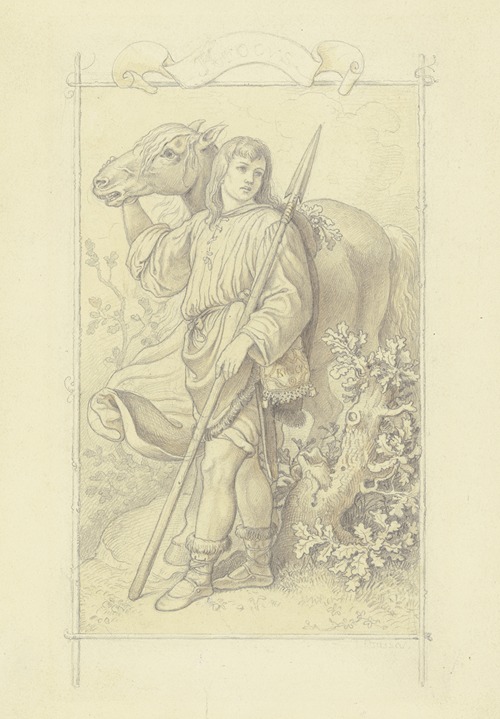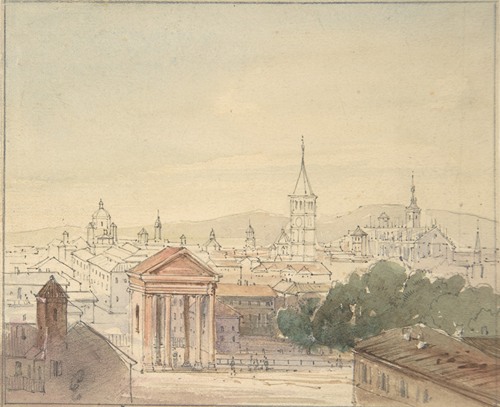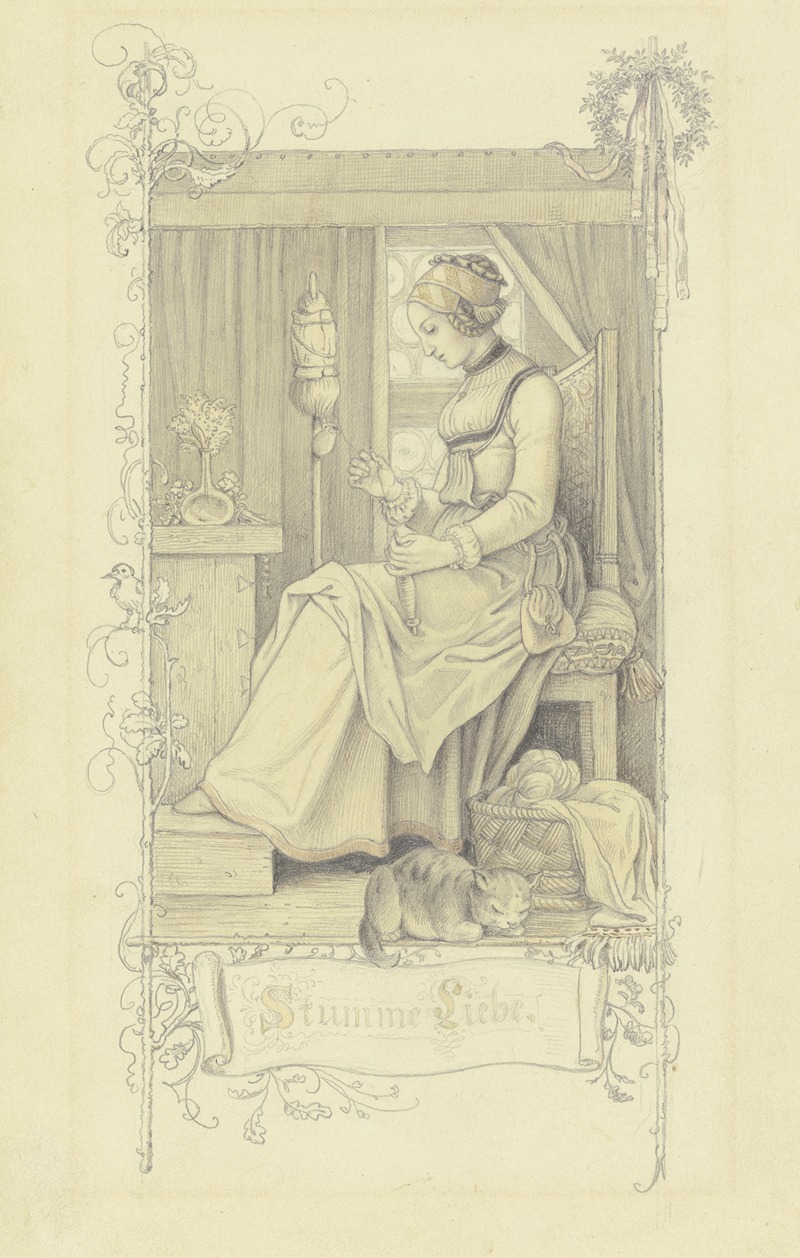
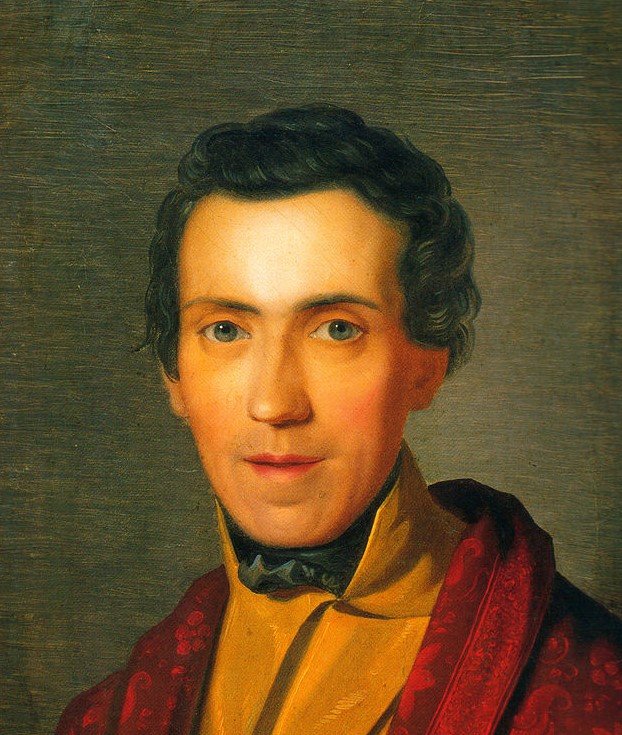
Adrian Ludwig Richter, a 19th-century German painter and etcher, who was strongly influenced by Erhard and Chodowiecki.
He was the most popular, and in many ways the most typical German illustrator of the middle of the 19th century. His work is as typically German and homely as are the fairy-tales of Grimm, for whom he produced several woodcuts.
He was born in Dresden, the son of the engraver Karl August Richter, from whom he received his training.
The interest of his uneventful life centres within the circle of his art. As a painter Richter aimed at a thorough blending of the figure element with the landscape and may be judged by the following examples: "Harvest Procession in the Campagna" (1833) and three others in the Leipzig Museum: "Ferry at the Schreckenstein" (1836) and "Bridal Procession in Springtime" (1847), in the Dresden Gallery; "View of the Riesengebirge" (1839), in the National Gallery, Berlin. One of his most notable protégés was Hermann Lungkwitz.
Richter visited Italy from 1823–1826, and his Thunderstorm in the Sabine Mountains at the Staedel Museum in Frankfurt is one of the rare Italian subjects from his brush.
From 1828 he worked as designer for the Meissen factory, living in a house on Schlossbrucke, close to the castle and cathedral, from 1828 to 1836.
In 1841 he became professor and head of the landscape atelier at the Dresden Academy, (now Hochschule für Bildende Künste Dresden). The Dresden Gallery owns one of his best and most characteristic paintings: Bridal Procession in a Spring Landscape. An eye disease put a stop to the practice of his art in 1874; he was pensioned in 1877, and died at Loschwitz, near Dresden.
